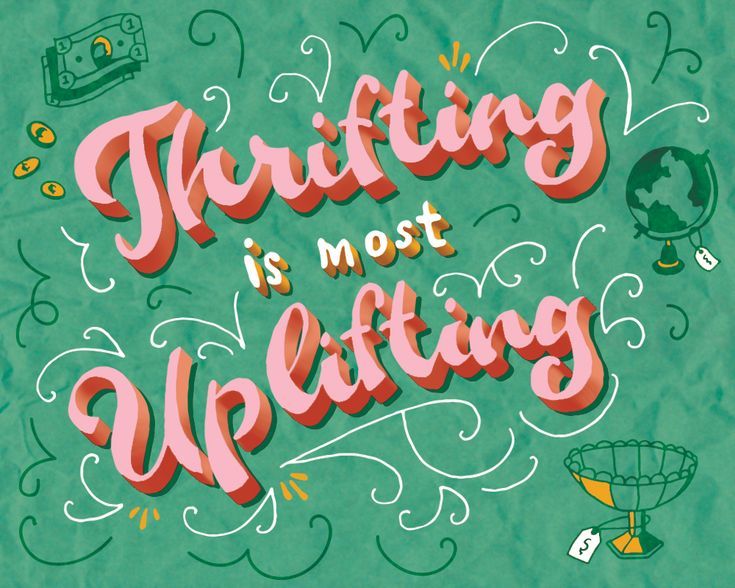World Thrift Day is an occasion that celebrates the importance of the thrift culture and responsible consumerism. It reminds us that every small effort towards reducing waste and reusing items can contribute to a sustainable and environmentally friendly future. Today, we have had the pleasure of speaking with two remarkable thrift stores- Thrift Fiction and Thriftiness, each playing a vital role in promoting the sustainable practice of Thrifting and helping consumers have a more conscious approach to consumption. Through this interview, we aim to delve deep into the culture of Thrift stores and how this impacts the fashion industry in particular and the planet in general.

SN: Why is thrifting becoming such a big thing in the fashion industry?
Thrift Fiction: For a long time, the fashion industry as we know it has been controlled by industry giants- both designers and factories. They determine the trends, the qualities, and even the sizes we get to wear. Thrifting has helped decentralise this industry to unlock a variety of options to express through what we wear.
Thrifting helps in expressing identity uniquely. Even with all the centralised power of algorithms deciding who gets to our online store, social media has also given us small businesses access to audiences who would not be able to reach us with a brick-and-mortar store.
Thriftiness: Thrifting not only offers items that are in the affordable range but also helps reduce landfill waste and is a tiny step towards a healthier environment. Thrifting also allows people to experiment with their styles without burning a hole in their pocket and a sense of excitement every time they go thrifting because it’s always spontaneous and you never know what gem you may find.
SN: According to you, what are the benefits of thrift shopping and why would you pick this over fast fashion?
Thrift Fiction: Thrifting indeed is environment friendlier, because it prevents clothes from going to the landfill and gives them a second home, a second closet. You get curated pieces when you follow a thrift store. You can subscribe to their aesthetic and taste and become part of a larger community of fashion enthusiasts.
Fast fashion on the other means mass production. These clothes probably were once a part of a batch of mass-produced goods, but as trends go, so do these styles, and thrifting has made these piles of ‘rejects’ into something desirable.
Also Read: “Work 70 Hours A Week,” Urges Narayana Murthy To The Youth, Sparks Debate On The Internet
SN: One thing that bothers us when shopping from a thrift store is the quality & maintenance of the product, how do you ensure these two are taken care of?
Thrift Fiction: Before putting full responsibility on the seller, the audience needs to get a better understanding of what thrifting culture. We encourage you to do some research on your part to see if a store is legit and ethical. Unfortunately, some stores might be selling mass-produced goods in bulk, pretending as thrift stores, like selling multiple pieces of the same product. We have even seen stores that would take your money and ghost you.
Having said that, nobody wants to sell bad products. Sometimes audience expects too much. These clothes come with a story and a reason why they have been dumped. Not all pieces will be in mint condition and one has to be okay with wearing them with pride.
Our ethical practices include- cleaning the product before shipping, after it has been worn for product shoots, and sending it through a trusted delivery agent who will make sure to take care of the parcel to ensure zero damage to the product in transit. We also highlight any damages to the product and its lowered price is also an indication.
Thriftiness: We ensure our customers get the best quality products at budget-friendly prices. Maintaining quality is our number one priority and that’s what has helped our thrift store grow into a family of 100k+ followers on our Instagram account with thousands of positive reviews
SN: Are there any trends in sustainable fashion that you feel are on the rise?
Thrift Fiction: Upcycling is the latest trend that we should subscribe to and be proud to participate in. The larger movement of sustainability should include not just preloved readymade garments but also fabric waste. With @Kaveriethnic, we employ tailors who customise outfits for diverse Indian bodies. We believe upcycling is not a trend, but a revived Indian sustainable practice that is now entering urban spaces and is here to stay.

Thriftiness: Sustainable fashion is and should be a trend in itself. It’s crazy to think about how much people have started to push for sustainability and prefer thrifted over brand-new. Not only our thrift store but many are helping people understand the importance of sustainability and how fast fashion affects our environment. I feel like educating one another and providing knowledge on the importance of sustainability is a good start for the fashion industry.
SN: On World Thrift Day, what is the advice you would give a shopaholic?
Thrift Fiction: Choose wisely, don’t consider thrifted clothes as one-time wear, defeating its purpose. Support as many small businesses as you can. Remember that thrifting does not only mean cheap, you are part of a movement against fashion giants who are polluting the earth for profits. Through thrifting, one can express oneself without bearing the guilt of how their clothing choices impact the Planet.
Thriftiness: Remember Thrifting is Fun, Thrifting is Affordable, Thrifting offers more than just a lesser price it also offers better quality for the price paid. Thrifting is Sustainable and Thrifting is the future. So do consider making a better choice because your small contribution of picking second-hand over brand-new makes a difference.

As we conclude this interview, it is clear that thrift stores like these play a crucial role in fostering a more sustainable and environmentally conscious future. By supporting these businesses and adopting thrifty habits in our daily lives, we can collectively contribute to a better world for generations to come.


